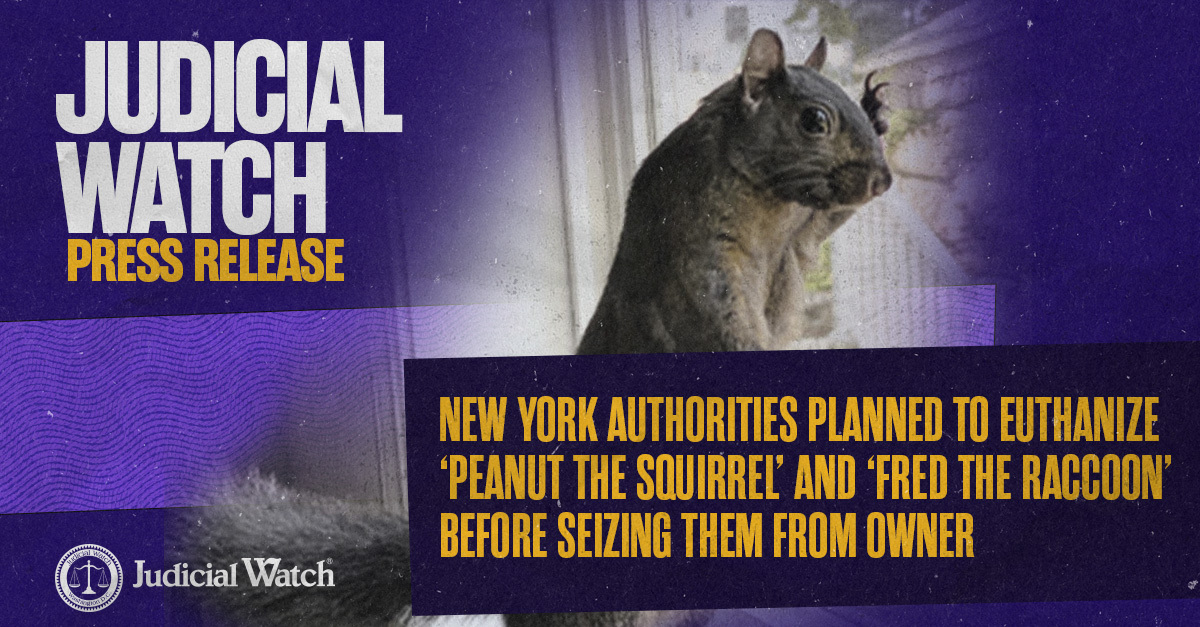
Judicial Watch: New Docs Show FBI Agents Went To Comey’s Home to Retrieve Memos
Updated 9/10/19
Documents also show Comey’s claim that two memos he wrote documenting conversations with President Trump were ‘missing’
(Washington, DC) – Judicial Watch announced today it received six pages of records from the FBI showing that in June, 2017, a month after FBI Director James Comey was fired by President Donald Trump, FBI agents visited his home and collected “as evidence” four memos that allegedly detail conversations he had with President Trump.
Comey was fired by Trump on May 9, 2017. The memos obtained by Judicial Watch were collected from Comey by the FBI on June 7, a month later, and are dated February 14, 2017; March 30, 2017; April 11, 2017; and one is dated “last night at 6:30 pm.”
The FBI documents also revealed that Comey recalled writing two other memos after conversations with Trump that he claimed were “missing.” The FBI visit and interview took place on June 7, the day before Comey admitted leaking the memos in testimony to Congress.
The new FBI documents include a June 9, 2017, FBI Collected Item Log which states:
On June 7, 2017, at approximately 10:15 A.M., Federal Bureau of Investigation (FBI) Special Agents (SA) [redacted] and [redacted] collected memorandums (memos) as evidence from James Comey at his residence at [redacted]. The memos collected described as follows:
-
- One memo dated February 4, 2017, two pages;
- One memo dated March 30, 2017, two pages;
- One memo dated April 11, 2017, one page;
- One memo dated “last night at 6:30 pm,” four pages
Judicial Watch also received a newly declassified FBI document dated June 16, 2017, in which FBI agents describe Comey telling them that he had written two additional Trump meeting memos that he could no longer find:
Former FBI Director James Comey was interviewed at his residence at [redacted]. This interview was scheduled in advance, for the purpose of providing certain classified memoranda (memos) to Comey for review. After being advised of the identity of the interviewing Agents and the nature of the interview, Comey provided the following information:
After reviewing the memos, Comey spontaneously stated, to the best of his recollection, two were missing:
In the first occurrence, Comey said at an unknown date and time, between January 7, 2017, which Comey believed was the date of his briefing at Trump Tower, and Trump’s inauguration on January 20th, 2017, Comey received a phone call from President Elect Donald J. Trump. The originating telephone number may have had a New York area code. Following the telephone conversation, Comey drafted and e-mailed a memo to James Rybicki and FBI Deputy Director Andrew McCabe.
In the second instance, Comey was on his way to a FBI leadership conference in Leesburg, Virginia (March 9, 2017) when he was diverted to Liberty Crossing to respond to a request from Trump to contact him. Comey contacted Trump from Liberty Crossing on a Top Secret telephone line. The conversation was “all business” and related to [redacted]. Comey is less sure he drafted a memo for his conversation but if he did, he may have sent it on the FBI’s Top Secret network.
Judicial Watch obtained the records in a Freedom of Information Act (FOIA) lawsuit against the Justice Department that sought all records of communications relating to Comey’s providing memoranda of his conversations with President Trump to Special Counsel Robert Mueller and his team. (Judicial Watch v. U.S. Department of Justice (No. 1:18-cv-00932)).
“These extraordinary FBI docs further confirm that James Comey should never have had FBI files on President Trump at his home and that the FBI failed to secure and protect these private and classified files,” stated Judicial Watch President Tom Fitton. “Mr. Comey’s illegal leaking these FBI files as part of his vendetta against President Trump (directly resulting in the corrupt appointment of Robert Mueller) ought to be the subject of a criminal investigation.”
On June 8, 2017, Comey testified to the Senate Intelligence Committee that he leaked memos of his conversations with President Trump “because (he) thought that might prompt the appointment of a special counsel.” Columbia University Law professor Daniel Richman, a friend of Comey’s, reportedly “turned over copies of the former FBI director’s explosive memos … to the FBI, sidestepping a request by congressional committees to deliver the materials to Capitol Hill.”
The Justice Department previously argued to the court in a separate case that Comey’s leak of the memo regarding former National Security Advisor Michael Flynn was unauthorized and compared it to WikiLeaks. Comey admitted to Congress regarding the “Flynn” memo, “I asked a friend of mine to share the content of the memo with a reporter [for The New York Times] … I asked him to because I thought that might prompt the appointment of a special counsel.” The New York Times published a report about the memo on May 16, 2017. Special Counsel Robert Mueller was appointed the following day.
The Hill noted in a July 9, 2017 report that, “More than half of the memos former FBI Director James Comey wrote as personal recollections of his conversations with President Trump about the Russia investigation have been determined to contain classified information, according to interviews with officials familiar with the documents.”
In a memo documenting his March 30, 2017, phone conversation with Trump on about how to “lift the cloud” of the Russia investigation from the White House, Comey wrote, “I called the acting attorney general and relayed the substance of the above and said I was telling him so he could decide what guidance to give me, if any.”
###
















